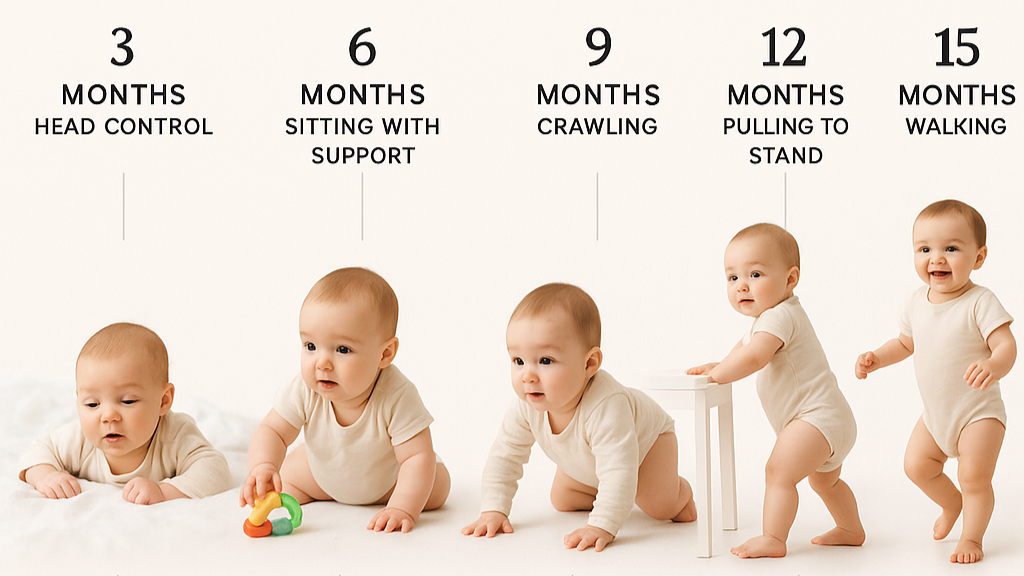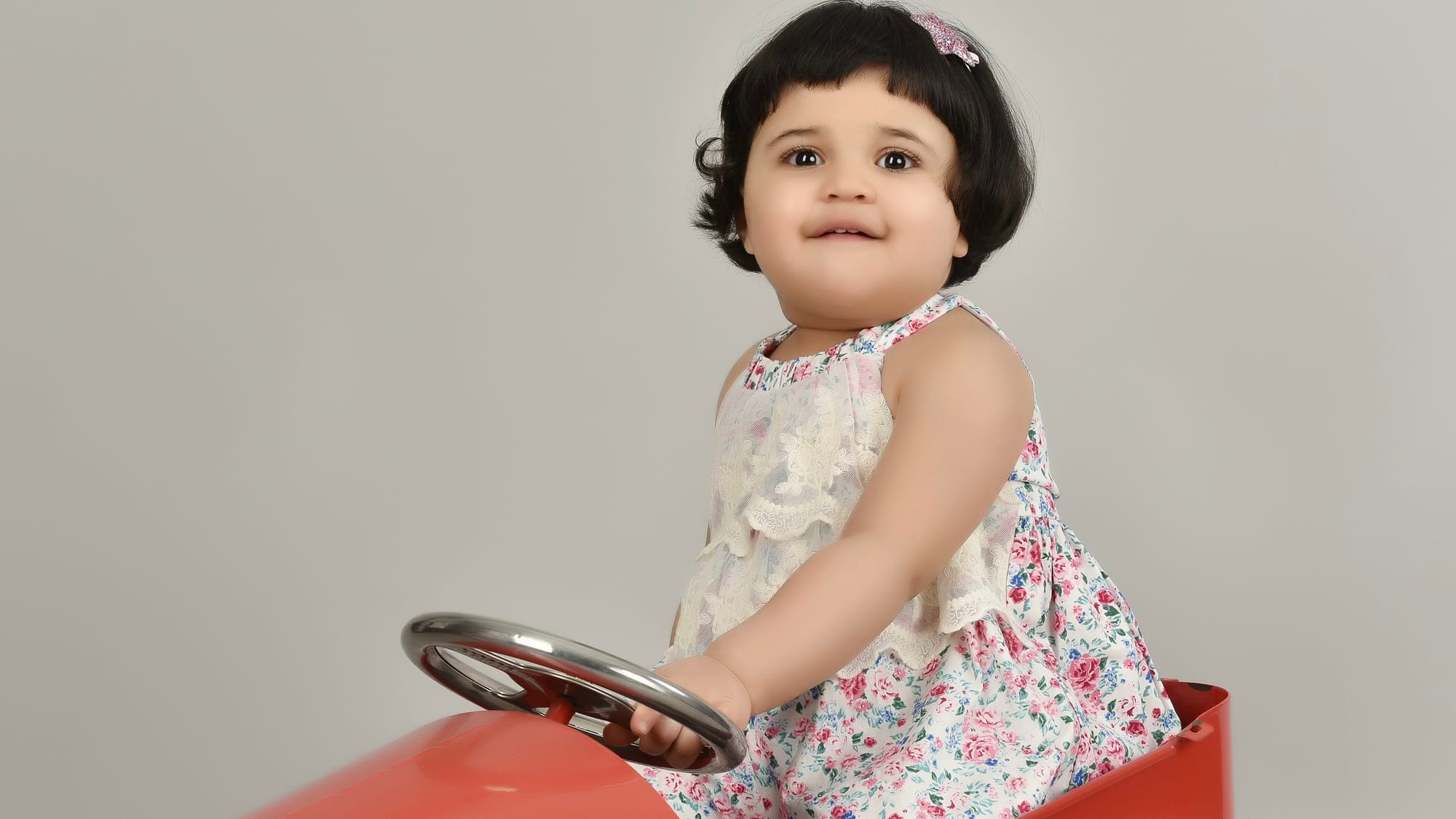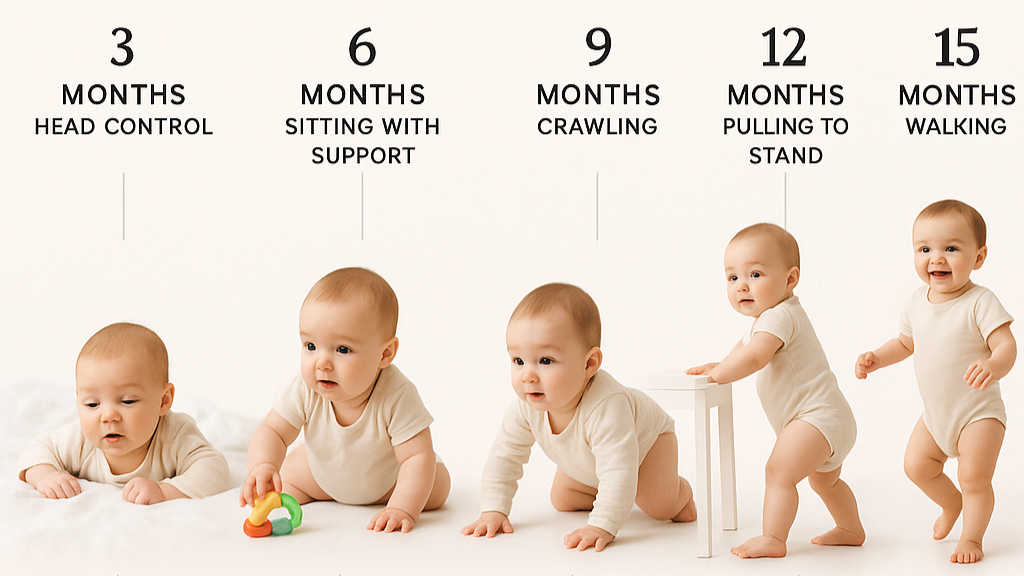Expert Insight + Parent Support: Child development follows a predictable sequence with significant individual variation. Our week-by-week guide combines pediatrician recommendations with practical TimeWise activities to support your child's journey. Remember that development is rarely perfectly linear—your child may advance quickly in some areas while taking more time in others.
Understanding Your Child's Developmental Timeline
Each child develops at their own unique pace, with milestones emerging within expected timeframes rather than on specific days. As a parent, understanding these general patterns helps you provide appropriate support and recognize when additional guidance may be needed. Our TimeWise Milestone Tracker provides a comprehensive view of what to typically expect from birth through toddlerhood.

Newborn to 1 Month: Building Foundation
What to Expect: During these precious first weeks, your newborn is adjusting to life outside the womb while making remarkable neurological connections.
Week | Key Developments | TimeWise Activity Recommendations |
|---|---|---|
1 | Recognizes your voice, briefly lifts head during tummy time | Daily skin-to-skin contact, gentle talking. |
2 | Focuses on objects 8-12 inches away (perfect for seeing your face during feeding) | Move objects slowly from side to side during alert periods |
3 | Begins to snuggle and show early social cues | Hold and comfort using gentle touch |
4 | Starts cooing and making "ahh" sounds | Mimic baby's vocalizations during face-to-face time |
TimeWise Tip: Establishing a consistent but flexible routine now creates security for your baby while honoring their developmental needs.
1 to 3 Months: Emerging Awareness
What to Expect: Your baby is becoming more socially engaged and physically active during this period of rapid development.
Milestone | When It Typically Appears | TimeWise Support Strategies |
|---|---|---|
First genuine smile | Weeks 5-6 | Create a "smile routine" with consistent face-to-face interaction |
Improved head control | Weeks 5-8 | Daily tummy time "mini-workouts" (3-5 minutes, several times daily) |
Hand discovery | Weeks 9-12 | Provide safe objects for grasping within reach |
Interest in surroundings | Weeks 9-12 | Narrate your activities, describe what baby sees |
3 to 6 Months: Interactive Play
Baby becomes increasingly engaged with their world during this period, developing crucial skills through play and interaction.
Physical Development:
- Rolling over (typically weeks 13-16)
- Improved hand-eye coordination
- Beginning to sit with support
Social and Language:
- Babbling and laughing
- Recognizing familiar faces vs. strangers
- Showing preferences for toys and activities
TimeWise Routine Builder: Create predictable play periods that incorporate:
- Reaching and grasping toys of varied textures
- Reading simple board books daily
- Interactive games like peek-a-boo
6 to 12 Months: Mobility and Communication
This period brings exciting transitions in independence as babies learn to move and communicate in new ways.
Key Developments:
- Sitting without support (around 6 months)
- Crawling (7-10 months)
- Pulling to stand (9-10 months)
- First steps (11-13 months)
- First words like "mama" and "dada" (9-12 months)
TimeWise Schedule Integration
- Create safe exploration zones
- Establish consistent nap and feeding routines
- Incorporate language-rich activities throughout the day
12 to 24 Months: Emerging Independence
Your toddler is developing rapidly across all domains, with individual personality shining through.
Physical:
- Walking confidently (12-15 months)
- Running and climbing stairs (15-18 months)
- Jumping in place (22-24 months)
Cognitive & Language:
- Following simple commands (12-15 months)
- Two-word phrases (18-24 months)
- Beginning imaginative play (18-24 months)
Social & Emotional:
- Shows empathy (18-24 months)
- Engages in parallel play (12-18 months)
- Transitions to cooperative play (18-24+ months)
When Development Varies: Normal Differences vs. Red Flags
Important Reminder: While development follows patterns, individual variation is normal and expected. Focus on overall progress rather than comparing to other children or rigid timelines.
When to Consult Your Healthcare Provider:
- No social smiling by 2 months
- No response to loud sounds
- Limited or no eye contact by 3 months
- Not reaching for objects by 5 months
- No babbling by 9 months
- No single words by 15 months
- Loss of previously acquired skills at any age.


